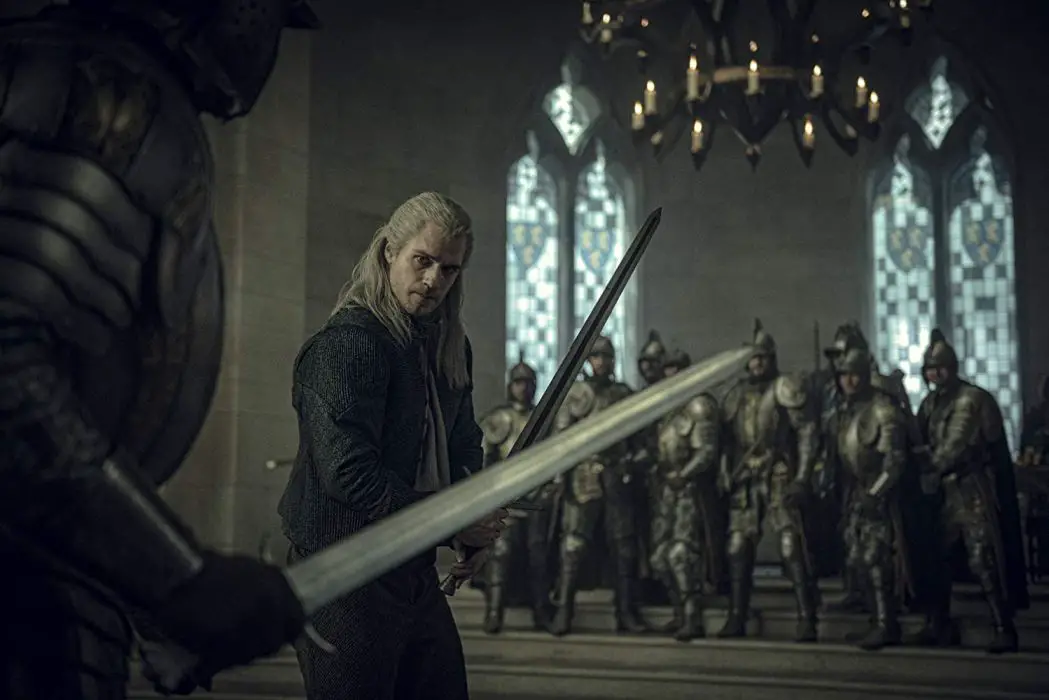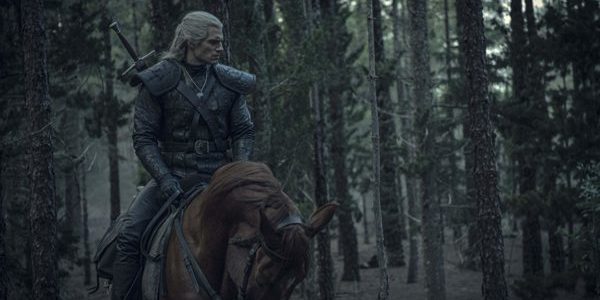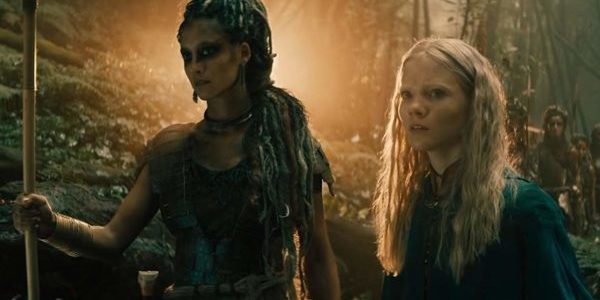THE WITCHER Season 1: Enjoyable, But Not Without Its Flaws

Born & raised in the Chicagoland area, I've been watching…
It’s very hard for anyone unfamiliar with the Witcher source material to piece together anything that goes on in Netflix’s adaptation of the beloved franchise, near impossible even. The series, based primarily on the novels by Andrzej Sapkowski (which went on to inspire a critically-acclaimed video game series). Many fantasy adaptations have failed to capture what made their source material so intriguing, and that seemed to be a problem going into Netflix’s The Witcher.
How could something that is, for many people, an introduction to a world filled with vast locations, deep characters, and complex mythology ever manage to capture audiences’ attention? That is, at least, without them causing them to whip out their phones mid-episode to read up on something that they didn’t know. Thankfully, the inaugural season manages to outdo expectations over the course of its eight-episode run, but there’s no doubt that the show does have plenty of visible flaws.
A Visually Impressive, But Narratively Muddled Journey
Probably the first thing viewers will notice about the show is its visual prowess. Episodes are shot with an epic scope and scale, marvelously capturing the vastness of the world. Monsters aren’t often realistic, but those who have played the games will be impressed by how the show adapts certain elements for the small screen. Landscapes are gorgeous, and the clear craft on display truly elevates what could potentially be for some people a dour, dry experience. Sets are magnificent as well, and provide an often stylistically vibrant look into the mythical realms that populate the story.

However, the overall narrative does falter over the course of the season’s run. It’s not uncommon for shows like this – ones that are heavily reliant on preexisting knowledge – to suffer from of lack of audience exposure, resulting in a script that fails to cohesively capture a refined structure. Much of this season is enjoyable, but the rushed storylines and fragmented timeline changes don’t exactly help. It’s the lack of controlled technicality that really drags it down, and despite it not sinking quite below the surface of what one could describe as mediocre, it’s disappointing that it takes as long as it does for the plot to be set in motion.

This is further evidenced by the way the story itself is set up. For other shows like it, the approach of having a new, small side-plot every episode might work, but for a show so wrapped up in lore, it isn’t effective to have two stories – one past, one present – constantly overarching each other to a point where viewers might be confused. It all eventually culminates with a final episode that is essentially the perfect imagining of what a show like this should look like: epic yet emotionally refined, vast in production design yet structurally cohesive in terms of its script and characters.
Surface-Level Characters
One of the main issues viewers might find with The Witcher is its abundance of characters. This wouldn’t be an issue if they were distinguishable outside of looks and knowledge of who’s a leading force, but the show mostly sidelines any semblance of true development aside from brief flashbacks that leave more questions than answers. The show reserves its “past” scenes to further contribute to knowledge of the story and give viewers necessary background, but isn’t able to fully balance characters and story to the best of its ability here. It’s not really the writers’ fault that they were given such a big load of mythology to attempt to explain, but more could’ve been done to refine characters’ motivations and backgrounds.

More time is spent on side characters than actually exploring the past of the titular Witcher, Geralt (Henry Cavill). This wouldn’t be a problem if the series didn’t market Geralt as the hero of the show, because the true standout is Yennefer (Anya Chalotra), who gets the most to do out of all of the leads and, as such, is easily the most interesting. Other characters feel disconnected from the plot, and I’m sure that they’ll have more to do in later seasons, but their respective arcs feel like loose threads, and not in a good way. Curiosity is key, but leaving characters without any sense of direction for the future isn’t admirable. Then again, this is the show’s inaugural season, so hope for the future is still prominent.
The Witcher: Conclusion
The Witcher ultimately outdoes expectations as a fantasy adaptation. It’s an enjoyable series that will hopefully fare well amongst mainstream audiences, though its puzzling way of handling time jumps and its heavy-handedness with exposition is bound to leave some confused. It feels disjointed at points and lacks focus, yet, despite its flaws, it’s an entertaining piece of television that I’m excited to see more of in the future.
The cinematography is beautiful and the way certain shots are lit combined with the coloring of the environments is often stunning. It’s not a bad show by any means, but the script could’ve used some more refinement overall. It earns my recommendation for the time being, but let’s hope the writers choose a more structurally balanced approach next season.
Have you watched The Witcher yet? What did you think?
The Witcher is available on Netflix.
Does content like this matter to you?
Become a Member and support film journalism. Unlock access to all of Film Inquiry`s great articles. Join a community of like-minded readers who are passionate about cinema - get access to our private members Network, give back to independent filmmakers, and more.
Born & raised in the Chicagoland area, I've been watching films for as long as I can remember.













